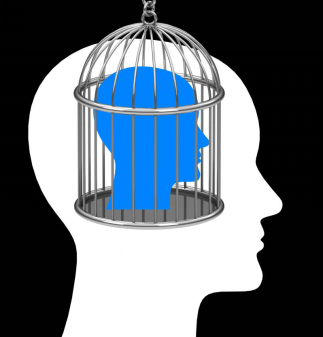Alzheimer’s is a common neurological condition that causes behavioral and cognitive issues in individuals.
As Alzheimer’s is a progressive disease, its symptoms may aggravate over time.
While the symptoms may vary from one person to another, most people with Alzheimer’s have trouble remembering things, places and people or solving problems in the beginning.
When forgetfulness makes it difficult for someone to perform normal routine tasks, it’s something to be alarmed about.
Research shows that low glucose levels in the brain lead to memory problems and cognitive decline. This eventually reduces the formation of new brain cells, thereby contributing to Alzheimer’s disease.
But, it’s important to understand the risk factors for Alzheimer’s, which include different factors, such as family history, age, lifestyle and environmental issues affecting the brain.
Some important facts you need to know
- According to the Alzheimer’s Association, more than 5 million Americans are suffering from Alzheimer’s in the US. This number is forecasted to increase to 16 million by 2050.
- Alzheimer’s is the sixth leading cause of death in the country.
- Majority of people with Alzheimer’s disease were 65 (or over) years old. 1-in-3 seniors die from the disease.
Examining the brain
The human brain is an invaluable asset. In many ways, our brain shapes our ideas, thoughts and behavior. When the brain stops functioning properly, the rest of the body organs respond similarly.
Each one of us has been blessed with a unique brain. This is why diagnosing Alzheimer’s disease is such a challenge.
Despite being such as a prevalent condition, healthcare professionals may find it difficult to give an accurate diagnosis for Alzheimer’s disease. Patients may experience different symptoms and signs. It’s crucial to rule out other possible causes of Alzheimer’s-type signs, such as memory loss. Stress, depression and similar factors may cause memory loss.
Therefore, doctors perform a variety of tests to come up with a diagnosis for Alzheimer’s disease. If you suspect that a loved one has Alzheimer’s disease, the first step is to get a careful evaluation from a doctor:
- After inquiring about a patient’s age, health, lifestyle and family history, a doctor can determine the cause of their cognitive issues. If your family member experienced a traumatic event in the past or uses any medication, it’s important that they inform their doctor.
- Along with medical history, doctors will recommend various medical tests and exams. Remember, no single test can diagnose Alzheimer’s. Mental status testing, neurological exam, physical exam, blood tests, mood test, etc. are some of the tests that can help evaluate an individual’s mental condition.
- Once it’s confirmed that an individual has Alzheimer’s disease, it can be treated with medication.
Regular use of medication is crucial to prevent the symptoms of Alzheimer’s disease from aggravating. Ensuring that the patient is in safe and comfortable environment is just as critical.
Looking after someone with Alzheimer’s disease can be daunting and painful because patients go through a series of memory loss stages.
If you feel that you don’t have the resources to care for a loved one with Alzheimer’s, you can count on Patriot Senior Care to ensure their safety and comfort. Learn more about our services offered in memory care in Northern California online.

